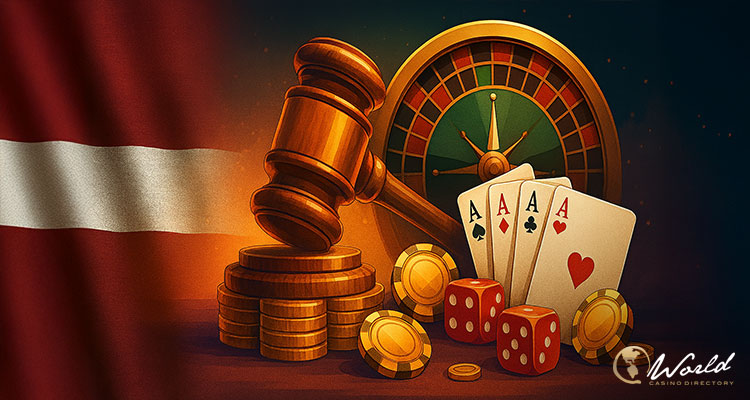Latvia has revealed a substantial restructuring of its gambling sector as part of the 2026 state budget, which includes sharp tax increases and the integration of gambling oversight into the country’s tax administration. The decision, confirmed by Finance Minister Arvils Ašeradens, aims to streamline the regulatory process and boost revenue for essential state priorities. The changes, originally scheduled for 2027, have been accelerated, with the reforms expected to take effect on January 1, 2026, and the regulatory body’s merger into the State Revenue Service (SRS) occurring earlier than planned, on April 1, 2026.
Latvia Introduces Significant Gambling Tax Hikes and Regulatory Changes
The government’s decision to hasten the gambling tax increases stems from an effort to meet the financial demands outlined in the 2026 budget, which earmarks €565 million in additional spending. The major expenditure categories include €320 million for security, €94.8 million for family support, and €45 million for education. To fund these priorities, Latvia will impose significant tax hikes on gambling activities.
From the beginning of 2026, taxes on gambling activities will rise sharply. The tax rate on interactive gambling revenues will increase from 12% to 15%, while telephone-based betting taxes will see a hike from 15% to 18%. The rates for annual gaming machines will jump from €6,204 to €7,440, and the annual taxes on table games such as roulette, card, and dice tables will climb from €33,696 to €40,440.
The Ministry of Finance estimates that these increases will generate an additional €9.2 million in revenue. This additional tax income will be divided between the state budget and local municipalities, with €175,000 allocated to the latter.
According to Ašeradens, the integration of the Lottery and Gambling Supervision Inspectorate (IAUI) into the SRS is a strategic move to cut administrative redundancies and consolidate licensing, tax collection, and anti-money laundering efforts under one roof. “The integration of gambling oversight into the SRS will allow us to establish unified management faster, make better use of our resources, and deliver higher-quality services to the public,” Ašeradens explained in a government briefing.
The merger of the IAUI and SRS is expected to simplify administrative processes and eliminate overlapping responsibilities. Until the integration in April 2026, the two agencies will continue to operate separately, with the IAUI overseeing regulatory compliance and licensing, and the SRS managing tax-related matters. However, the overlap in their functions—both have the authority to enforce sanctions, conduct investigations, and oversee anti-money laundering measures—has led the government to accelerate the integration process. The goal is to increase efficiency, reduce bureaucracy, and provide a more transparent public administration system.
According to LETA, the integration also serves the broader aim of tightening fiscal oversight in preparation for higher gambling duties. The new tax structure is part of Latvia’s efforts to bolster its financial resources, which will help fund the aforementioned budget priorities.
Impact on Latvia’s Gambling Market and Broader Tax Reform
The decision to increase gambling taxes reflects Latvia’s broader fiscal strategy, which also includes raising excise duties on tobacco and alcohol. These hikes are part of an overall plan to secure additional funds for vital public services. For instance, tobacco taxes will increase by 5% in 2026 and 2027, and alcohol taxes will also rise, with a €15 increase per 100 liters of spirits starting in March 2026.
Despite concerns from industry stakeholders, including warnings from the Dutch Lottery that higher taxes might push players toward black-market operators, Latvia’s government remains committed to the reform. By restructuring its gambling tax system and regulatory bodies, Latvia aims to reinforce its fiscal integrity while maintaining a sustainable gambling market.
As Latvia braces for these sweeping changes, the gambling industry will need to adjust to the new tax structure and the transition to a more centralized regulatory framework. Industry analysts are watching closely to see how these shifts will affect gambling operators, particularly those engaged in interactive and telephone betting, which will face the steepest increases.
In parallel, the SRS will assume a more dominant role in overseeing the gambling sector, with greater coordination between tax collection, enforcement, and regulation. The integration is expected to improve efficiency, but how the market will respond to higher taxes remains to be seen.


